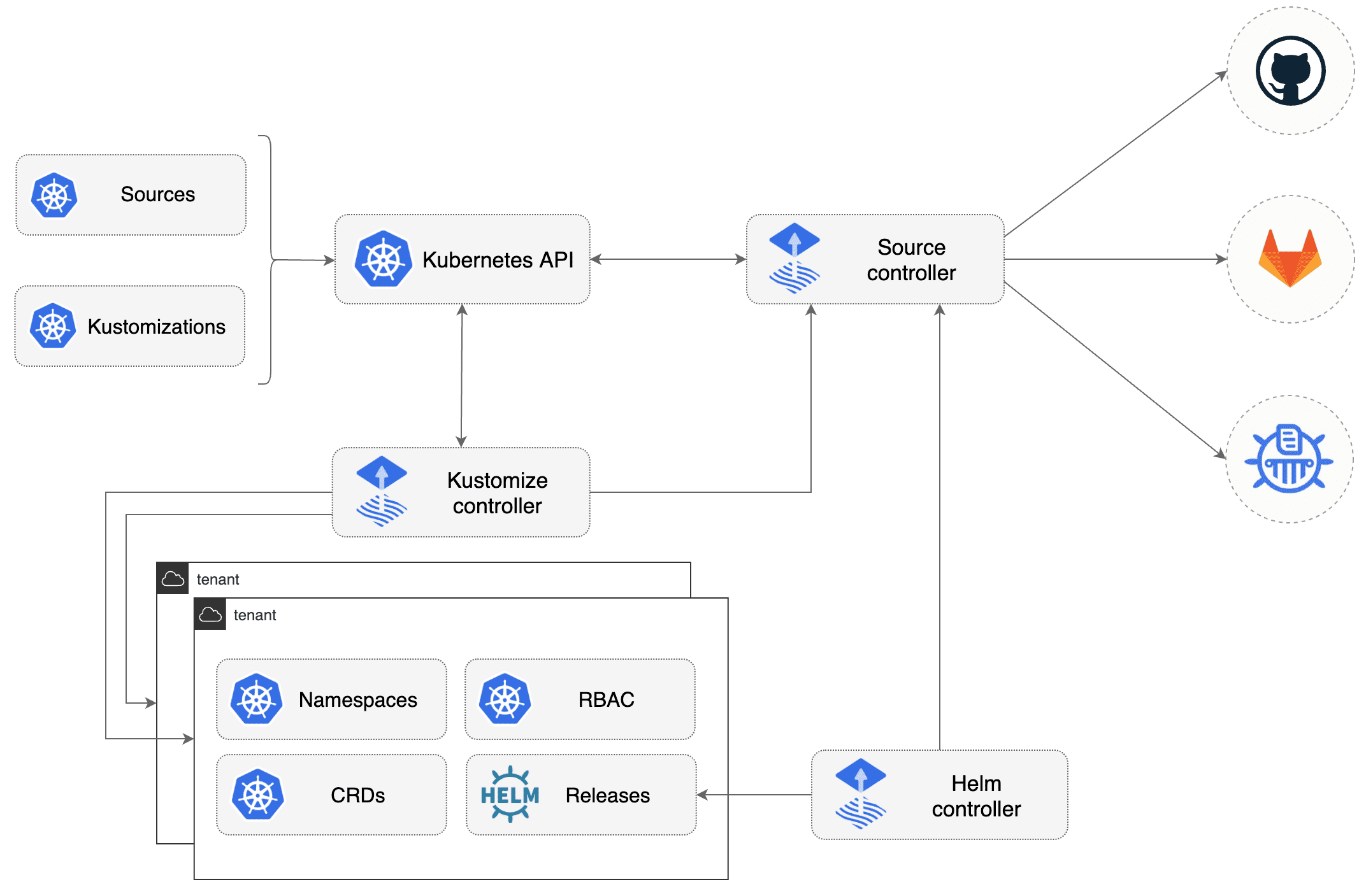Replace monitoring stack with kube-prometheus-stack
Flux version 2
Flux is a tool for keeping Kubernetes clusters in sync with sources of configuration (like Git repositories), and automating updates to configuration when there is new code to deploy.
Flux version 2 ("v2") is built from the ground up to use Kubernetes' API extension system, and to integrate with Prometheus and other core components of the Kubernetes ecosystem. In version 2, Flux supports multi-tenancy and support for syncing an arbitrary number of Git repositories, among other long-requested features.
Flux v2 is constructed with the GitOps Toolkit, a set of composable APIs and specialized tools for building Continuous Delivery on top of Kubernetes.
Flux installation
With Homebrew:
brew install fluxcd/tap/flux
With Bash:
curl -s https://fluxcd.io/install.sh | sudo bash
# enable completions in ~/.bash_profile
. <(flux completion bash)
Arch Linux (AUR) packages:
- flux-bin: install the latest stable version using a pre-build binary (recommended)
- flux-go: build the latest stable version from source code
- flux-scm: build the latest
(unstable) version from source code from our git
mainbranch
Binaries for macOS, Windows and Linux AMD64/ARM are available to download on the release page.
A container image with kubectl and flux is available on Docker Hub and GitHub:
docker.io/fluxcd/flux-cli:<version>ghcr.io/fluxcd/flux-cli:<version>
Verify that your cluster satisfies the prerequisites with:
flux check --pre
Get started
To get started with Flux, start browsing the documentation or get started with one of the following guides:
- Get started with Flux
- Manage Helm Releases
- Automate image updates to Git
- Manage Kubernetes secrets with Mozilla SOPS
If you need help, please refer to our Support page.
GitOps Toolkit
The GitOps Toolkit is the set of APIs and controllers that make up the runtime for Flux v2. The APIs comprise Kubernetes custom resources, which can be created and updated by a cluster user, or by other automation tooling.
You can use the toolkit to extend Flux, or to build your own systems for continuous delivery -- see the developer guides.
Components
- Source Controller
- Kustomize Controller
- Helm Controller
- Notification Controller
- Image Automation Controllers
Community
Need help or want to contribute? Please see the links below. The Flux project is always looking for new contributors and there are a multitude of ways to get involved.
- Getting Started?
- Look at our Get Started guide and give us feedback
- Need help?
- First: Ask questions on our GH Discussions page
- Second: Talk to us in the #flux channel on CNCF Slack
- Please follow our Support Guidelines (in short: be nice, be respectful of volunteers' time, understand that maintainers and contributors cannot respond to all DMs, and keep discussions in the public #flux channel as much as possible).
- Have feature proposals or want to contribute?
- Propose features on our GH Discussions page
- Join our upcoming dev meetings (meeting access and agenda)
- Join the flux-dev mailing list.
- Check out how to contribute to the project
Events
Check out our events calendar, both with upcoming talks you can attend or past events videos you can watch.
We look forward to seeing you with us!


